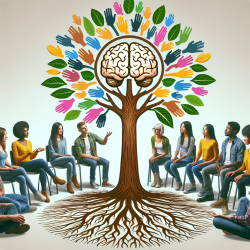In today's world, where mental health challenges are on the rise, innovative solutions are needed to address the growing demand for mental health services. One such solution is the use of youth lay counselors (YLCs) to provide structured, evidence-based counseling interventions. This approach not only alleviates the burden on overtaxed health systems but also empowers young individuals to make a meaningful impact in their communities.
The Role of Youth Lay Counselors
Youth lay counselors are young individuals aged 19 to 27 who receive specialized training to deliver counseling services. Their role is crucial in bridging the gap between professional mental health services and the communities they serve. By leveraging their shared experiences and relatability, YLCs provide a unique form of support that resonates deeply with their peers.
Principles for Effective Youth Lay Counselor Programs
To ensure the success of youth lay counselor programs, several key principles must be adhered to:
- Structured Supervision: YLCs should receive ongoing supervision from mental health professionals. This includes immediate support during crises and regular case reviews to enhance their skills and confidence.
- Clear Roles and Responsibilities: It is essential to define the boundaries of YLCs' responsibilities clearly. This ensures that they operate within their scope and know when to escalate cases to professionals.
- Community Integration: YLCs often reside within the communities they serve. Training should emphasize confidentiality and professional boundaries to maintain trust and effectiveness.
- Comprehensive Training: High-quality training tailored to the educational level of YLCs is vital. This includes practical exercises and continuous learning opportunities.
- Mental Health Support for YLCs: Supporting the mental health of YLCs is crucial. Programs should offer access to mental health resources and support groups for counselors.
- Adequate Compensation: Recognizing the value of YLCs through appropriate compensation and professional development opportunities ensures their motivation and sustainability.
The Impact of Youth Lay Counselor Programs
Youth lay counselor programs have demonstrated significant positive outcomes in various settings. For instance, Zimbabwe's Friendship Bench program successfully utilized task-shifting interventions delivered by trained lay health workers. Similarly, the Zvandiri program integrated HIV, mental health, and protection services using trained youth lay counselors, improving adherence to antiretroviral therapy and reducing common mental disorders among youth living with HIV.
The horizontal peer-to-peer communication model employed by these programs fosters collective decision-making and empowers young individuals to influence change effectively. By addressing both common mental disorders and specific issues such as HIV risk behaviors, these programs have had a profound impact on their communities.
The Future of Youth Lay Counselor Programs
As we look towards the future, it is essential to continue supporting and expanding youth lay counselor programs. By investing in their training, supervision, and well-being, we can ensure that these young individuals continue to make a meaningful difference in their communities.
For practitioners looking to implement or enhance youth lay counselor programs, further research into best practices and innovative approaches is encouraged. By staying informed about successful models like those in Zimbabwe and Botswana, practitioners can adapt these principles to suit their local contexts effectively.
To read the original research paper that inspired this discussion, please follow this link: Principles for delivery of youth lay counsellor programs: Lessons from field experiences.










